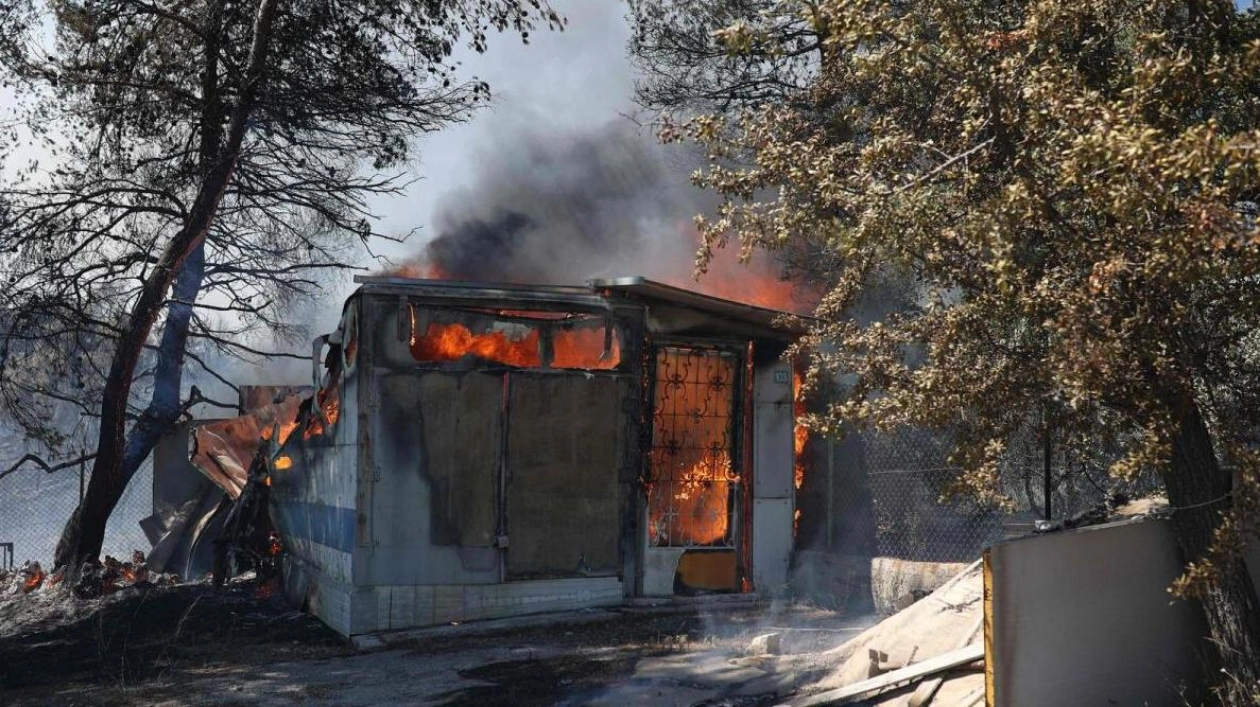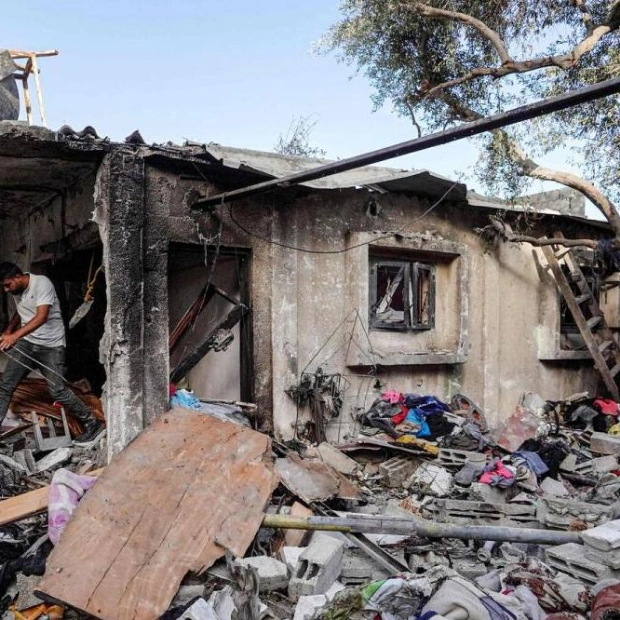On Monday, thousands of people evacuated their homes in areas near Athens, including the historic town of Marathon, as powerful winds drove a massive wildfire towards the Greek capital. According to ERT public broadcaster, a 30km-long fire front, reaching heights of over 25 meters in some places, was advancing towards Athens. Nearly 700 firefighters and more than 30 aircraft were deployed to combat the fires that had reached the outskirts of the city near Mount Pentelikon. Authorities utilized the Olympic stadium in northern Athens and other facilities to shelter evacuees, while three major hospitals were put on alert.
One firefighter sustained severe burns, another was hospitalized due to breathing difficulties, and 13 others received treatment for milder respiratory issues, as reported by fire brigade spokesman Vassilis Vathrakogiannis. Halandri, a suburban municipality, ordered a partial evacuation due to the fire's proximity. "Due to the wind direction, we have opted for a precautionary evacuation," Mayor Simos Roussos explained to ERT. "The fire is very close." Television footage revealed flames encroaching on homes in Nea Penteli, prompting residents to relocate.
Several smaller communities and towns, including Marathon, began evacuations on Sunday. "We are facing a biblical catastrophe," Marathon's mayor Stergios Tsirkas told Skai television. "Our entire town is in flames." Smoke from the fires clouded central Athens, enveloping Mount Pentelikon, known for its marble used in historical structures like the Acropolis.
Despite efforts by civil protection forces, the fire continued to spread rapidly, reignited by the wind in 40 different locations on Monday. A children's hospital and a military medical facility in Penteli were evacuated early in the morning. This situation echoed the tragic 2018 Mati disaster, where 104 lives were lost due to delayed evacuations and errors.
Greece's current wildfire season has seen numerous daily fires, following the country's warmest winter and hottest June and July on record since 1960. Forecasts predict temperatures in Athens to reach 39 degrees Celsius, with wind gusts up to 50 kilometers per hour. Civil Protection Minister Vassilis Kikilias had warned of a high fire risk across half the country due to extreme weather conditions. Despite rapid response efforts, a fire near Varnavas spread quickly due to strong winds.
Scientists attribute the increasing frequency and severity of heatwaves and wildfires to human-induced fossil fuel emissions. The UN Intergovernmental Panel on Climate Change notes that rising temperatures are extending wildfire seasons and expanding the affected areas. Europe is also experiencing high temperatures, with parts of France exceeding 40 degrees Celsius, and Rome and the Netherlands expecting temperatures between 32 and 38 degrees Celsius.






